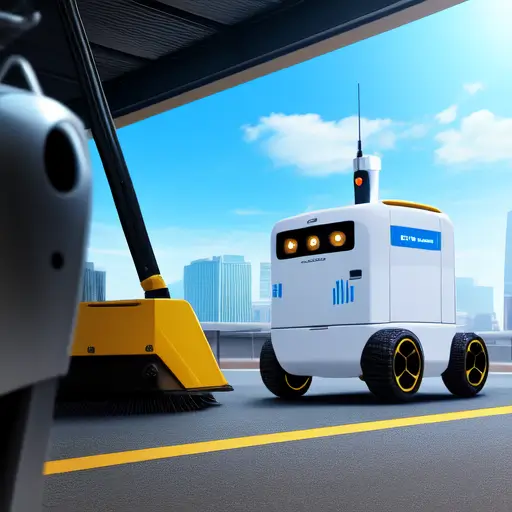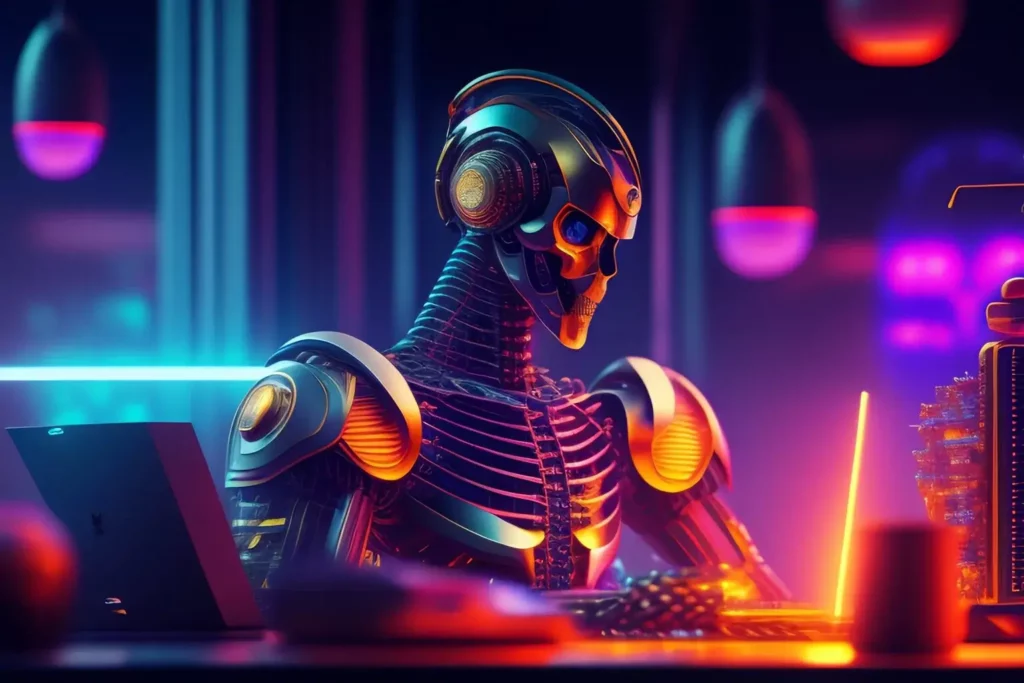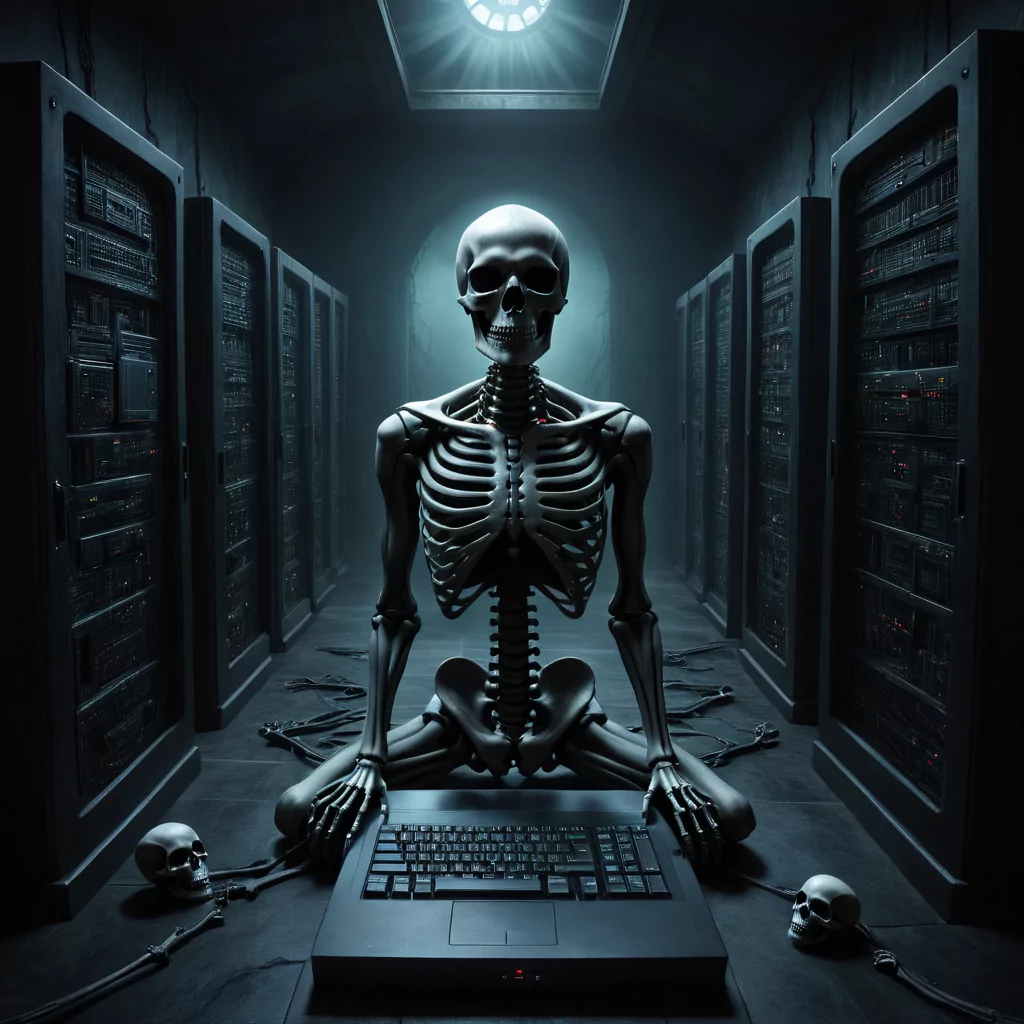Are you feeling hot under collar, Will AI come and take your Job or is it all just a dystopian fantasy

Let’s face it that’s all we want to know “Will AI take my job?”. The storm is fast approaching and we are already seeing dozens of articles on how AI can perform a wide range of jobs and much quicker then people. Now is this something to be scared of or is it a form of limited technology? Should we protect individuals and ensure their livelihood stays safe or perhaps change the job market as a whole. Lot’s of important questions to ask, very few are answering them. So will Artificial Intelligence take your job?
When it comes to AI is My Job Safe?
Let’s face it this is a debatable hot topic and has been thrown around the internet for the past few months what with the release of ChatGPT and the rise of Artificial intelligence, it’s no wonder. People are scared and in some cases it’s reasonable to feel that way especially if your job can be easily automated.
The job market is already changing and AI is starting to have an impact on how people apply for jobs, which jobs are actually available for “humans” and how these humans are hired. Things are changing at an alarming rate and you have a right to know if your job is going to be future proof. We can’t guarantee if your job is going to be safe from automation but we can try to provide you with more information in regards to how to avoid being reliant on a job that might be automated.
What Jobs Might AI take over and become Automated?
When we think of Job automation through the use of AI, we think of jobs that are repetitive and of no offense to anyone that has one but low educational standard as in you just require a basic education (no higher education). When we think of these types of jobs we think of production lines, manual labour and simple data entry.
Some of these jobs have already been replaced, you can use AI scripts that will clone data across from tables, making the majority of data entry obsolete. The only jobs that require humans interaction for data entry will be analysis and ensuring the programming behind it is working without bugs.
When it comes to production lines, AI is heavily being implemented for speed and preciseness when creating products. We have been using machines to create car parts for years now, it was only inevitable that it would take over the whole production market and start making more basic items. Currently the only thing stopping AI taking over majority of these jobs is of course the cost to implement. As the years go by this new technology will become cheaper and we will see more a mass adaptation. So perhaps maybe don’t aim to work on the production line unless you are the one creating the machines or repair the machines that operate on them.
The main worry people have is if AI will start replacing other job sectors, like writing, reading and being creative. So it is important that we all keep up to date with the progress that AI is making within the job market and if it’s going to come for your job next.
Should I worry About AI replacing my Job?
The speed that AI is evolving and changing the way it interacts with users is happening at such an alarming rate we all have reasons for concerns. Especially when it comes to our livelihood as a whole.
So should you really worry if AI is going to replace you or is this just a dystopian future? Well it’s debatable. Sorry, we don’t have all the answers, we wish we did for you. All we can say is that if your job can be easily automated and can be easily replaced by a machine then chances are at sometime in the future your job “might” be replaced. This does not mean it will.
Important factors need to be take into account, the main issue with AI is that it is quite expensive to implement and you need to work out weather or not the cost is worth the investment. Sometimes it might be easier, cheaper and beneficial for the community to just hire a human work force instead. Just because things can be automated doesn’t mean they should be.
But a word of caution you might want to increase your skill set if you are in the field of production as this most likely will be hit hard in the next decade.

What are the few jobs that might be safe from automation?
We are not telling you to quit your job and look somewhere else, far from it. If you love your work then you should continue to work there. But we do recommend people learn more skills just in case they need to find another job. Here are a few examples of work you could train to work in:
Machine Learning
Machine learning is the use and development of computer systems that are able to learn and adapt without following explicit instructions, by using algorithms and statistical models to analyse and draw inferences from patterns in data. Basically teaching machines to learn. You will want to learn Python the programming language if you are interested in learning this subject.
Artificial Intelligence
That’s right learn how to create and code AI! It’s a real head scratcher but if you can master it the job market it is open to a wide range of opportunities.
Programming (advanced)
Sure AI can create snippets of programming and basic programs, but it currently needs someone to test and implement it. This is where a human touch comes in. You will also be the one who is programming these new machines. As we have mentioned before you will want to learn python.
Cloud Engineering
So why the cloud? well that’s where the AI’s brain is going to be kept. This is how AI can be used across so many platforms on a wide scale. All these new AI systems use API calls and charge per use. So learn cloud computing and data storage and the world could be your oyster!
These are just a few things you can learn to try to future proof your job market in the future. Please note these require a high level of education so can be hard to get into, not impossible to learn though!



























